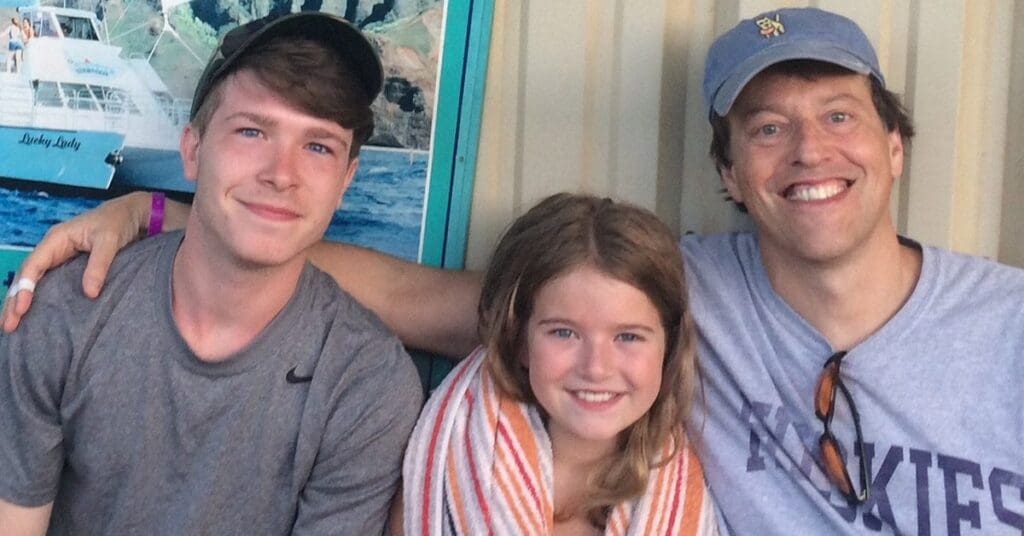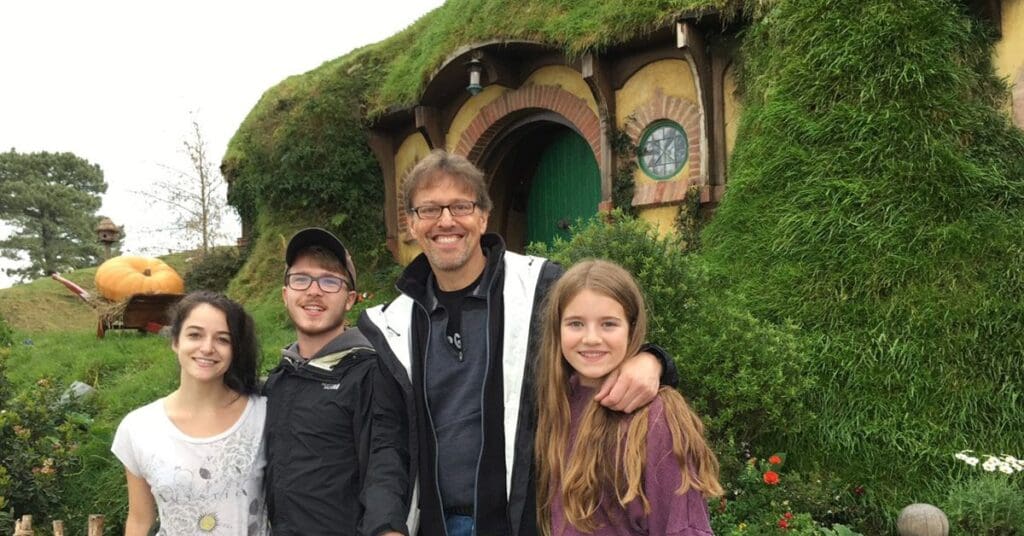A lawyer by training, Don Theophilus, chief advancement officer and vice president for Medical Affairs, found his career path in fundraising by way of virtual reality.
An unconventional start
University of Washington’s Human Interface Technology Lab, a multidisciplinary research and development lab founded by Thomas Furness, PhD, was on the forefront of virtual reality in the early ’90s, Theophilus recalls.
“I liked science fiction and I was following what was going on with virtual reality at the time,” says Theophilus.
At the same time, he was also on the brink of changing his own career reality.
After quitting his job at a local law firm in order to travel extensively, he returned to Seattle and started taking a nonprofit fundraising management program through the UW, one component of which was a volunteer internship with a local nonprofit.
On the lookout for an internship role, Theophilus attended a symposium where he introduced himself to Furness. Excited about the potential of the lab, but aware of the funding restraints they were facing, Theophilus offered to help raise money for his lab. Furness said yes.
Compared to what his advisors in the UW fundraising program were used to, this was a rather nontraditional volunteer opportunity, but they signed off on his internship.
Theophilus quickly found himself spending countless hours volunteering with the lab to help them fundraise, while working part time as a lawyer on the side to pay the bills. He was so successful that the lab offered him a paid position so he could fundraise full time.
Theophilus left his law career and didn’t look back
At home in academia
Theophilus’ passion for fundraising and science took him to Ann Arbor, Michigan, where he worked in corporate and foundation relations at the University of Michigan College of Engineering, and then in the University’s central Corporate & Foundation Relations. From there, he went to work for the University of Colorado Foundation as vice president for corporate and foundation relations across the four-campus system. He spent the next 11 years at Swedish Medical Center in Seattle as the foundation’s executive director and president before coming to UW Medicine.
“I wanted to end my career back home in academia,” says Theophilus. “UW is my alma mater and my mother retired from UW Medicine. I have very strong connections to this institution.”
Theophilus grew up in a university setting, both his dad and his grandfather worked as academics and university administrators, so landing a job in a health system like UW Medicine was meaningful to him.
Record-breaking funding
Under Theophilus’ leadership, last fiscal year UW Medicine Advancement raised $376 million (48% of the University of Washington’s total) in gifts and private grants from over 19,000 donors — its sixth consecutive record-breaking year.
In June they also successfully completed a historic, 10-year campaign raising more than $2.5 billion and exceeding the campaign’s goal by $500 million.
The Accelerate campaign supported the launch of four new institutes, made breakthroughs in research to prevent and treat humanity’s most serious diseases, increased access to high quality healthcare in our region by expanding programs and services, provided critical leadership and support to the regional, national and global public health response to COVID-19, and more.
“Our bottom line is the impact that those gifted dollars can have,” says Theophilus. “Central to our ability to raise that money and have an impact is the fact that our fundraising team is a team of extremely high performers.”
This team of just over 60 people cover all aspects of fundraising for UW Medicine from annual giving, planned giving, alumni relations, gift processing, and stewardship to events, prospect research, marketing and more.
Theophilus describes his team in Advancement as a group of smart people that get things done and who are truly committed to helping UW Medicine maximize its impact for patients and our community.
Seeing and sharing a donation’s impact
Donors’ gifts impact our community in such a positive way, and Theophilus’ favorite part of his job is sharing that impact.
“One of my favorite moments is when a donor that you have been working with gets to see the impact their gift has had for someone else,” says Theophilus.
A number of donors like to keep their giving private, but Theophilus respectfully encourages them to share their stories of supporting UW Medicine when there are opportunities to create positive impact on the community.
“Going public with their giving creates momentum,” says Theophilus.
And in healthcare, giving to efforts that serve specific populations or certain diseases can decrease stigma and increase awareness.
“Those moments when a donor realizes their gift made an impact and has affected people’s lives in a positive way are amazing,” says Theophilus. “Donors will tell me they had friends and acquaintances reaching out to them saying thank you because their donation had an impact on their family.”
From vacations to volunteer opportunities
When he isn’t leading his team and talking with donors, you can find Theophilus spending time with his family and traveling.
“It’s hard to be grounded right now,” he says. “We were supposed to go to the Galapagos this year, my daughter was supposed to be in Panama with her Spanish class and we missed our favorite annual trip to the Vancouver Folk Music Festival with close friends — but we are finding our joy closer to home.
Instead of a trip to the Galapagos, Theophilus took his kids camping on the coast, and then this fall, along with some of his law school classmates, made a trip to Nevada to volunteer as poll watchers for the 2020 U.S. presidential election.

On vacation in Kauai, Hawaii.
Connecting through music
One thing COVID-19 hasn’t changed for Theophilus and his family is their love for music.
“I love Spotify, it’s my favorite technology. Period. By an order of magnitude. My son, Dylan got his younger sister, Zoe, and I on that app,” says Theophilus.
The moment Spotify became Theophilus’ favorite app was just a few years ago. Theophilus says he was driving with his kids listening to music and, as proud collector of CDs, tapes and vinyl records, Theophilus told them, “I have so many of this artist’s albums.”
“It was then that Dylan pulled out his phone, held it up to me and said, ‘I have ALL their music,’” Theophilus recounts. “I downloaded Spotify soon thereafter.”
When the three of them are traveling abroad and battling over Spotify playlists, Theophilus says there is one artist that they can all agree on: Van Morrison.

Touring Hobbiton, the movie set from Lord of the Rings, in New Zealand.


